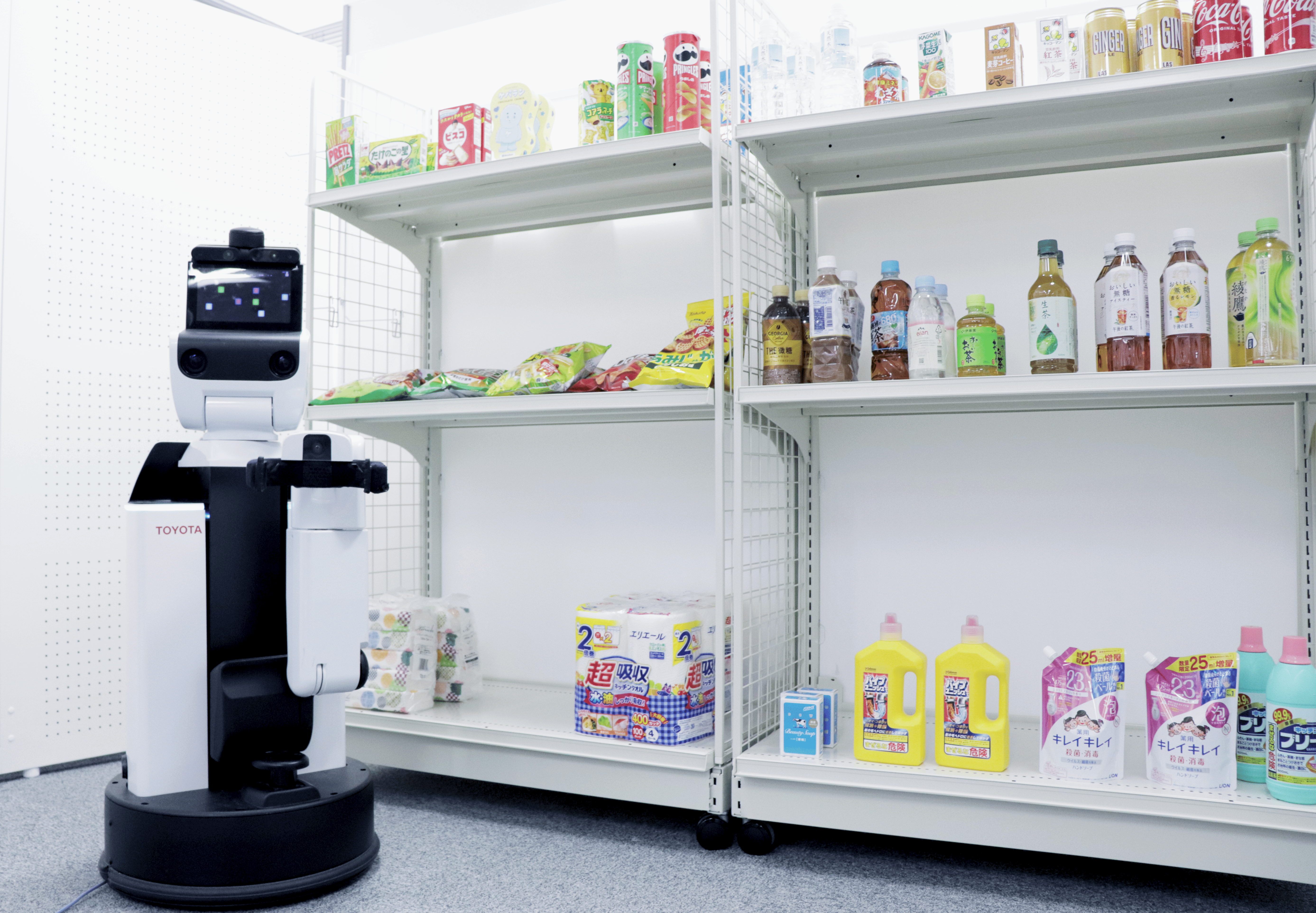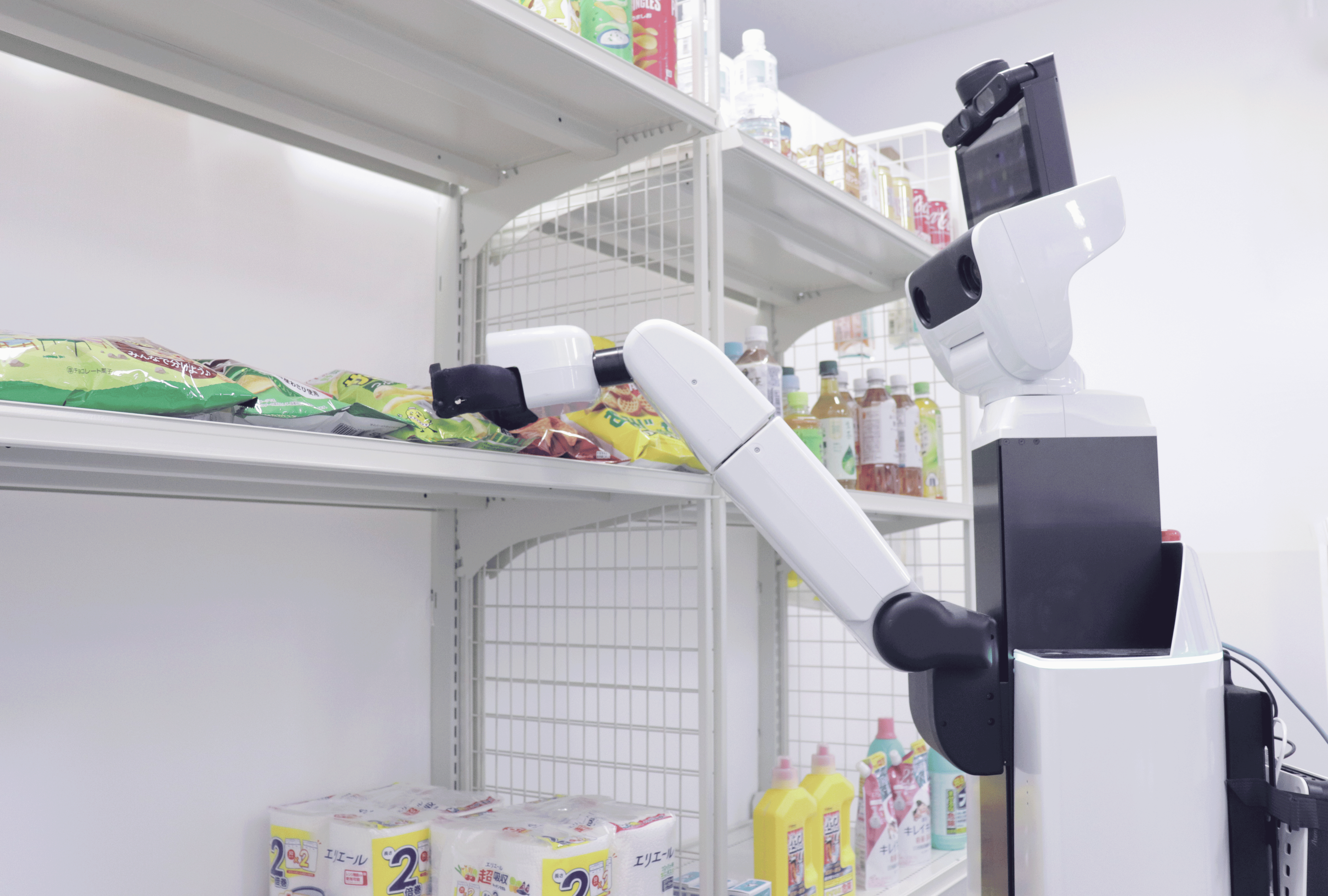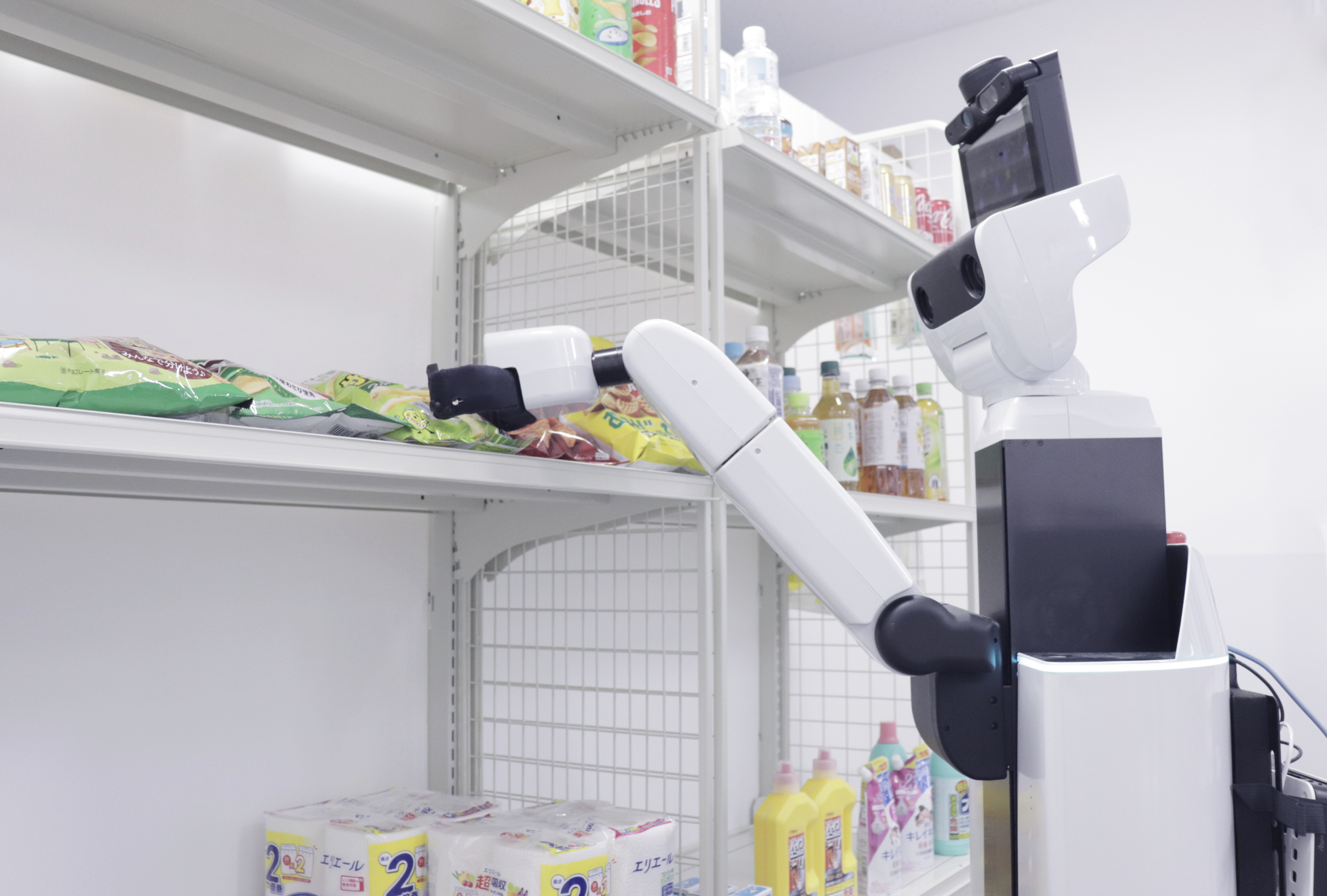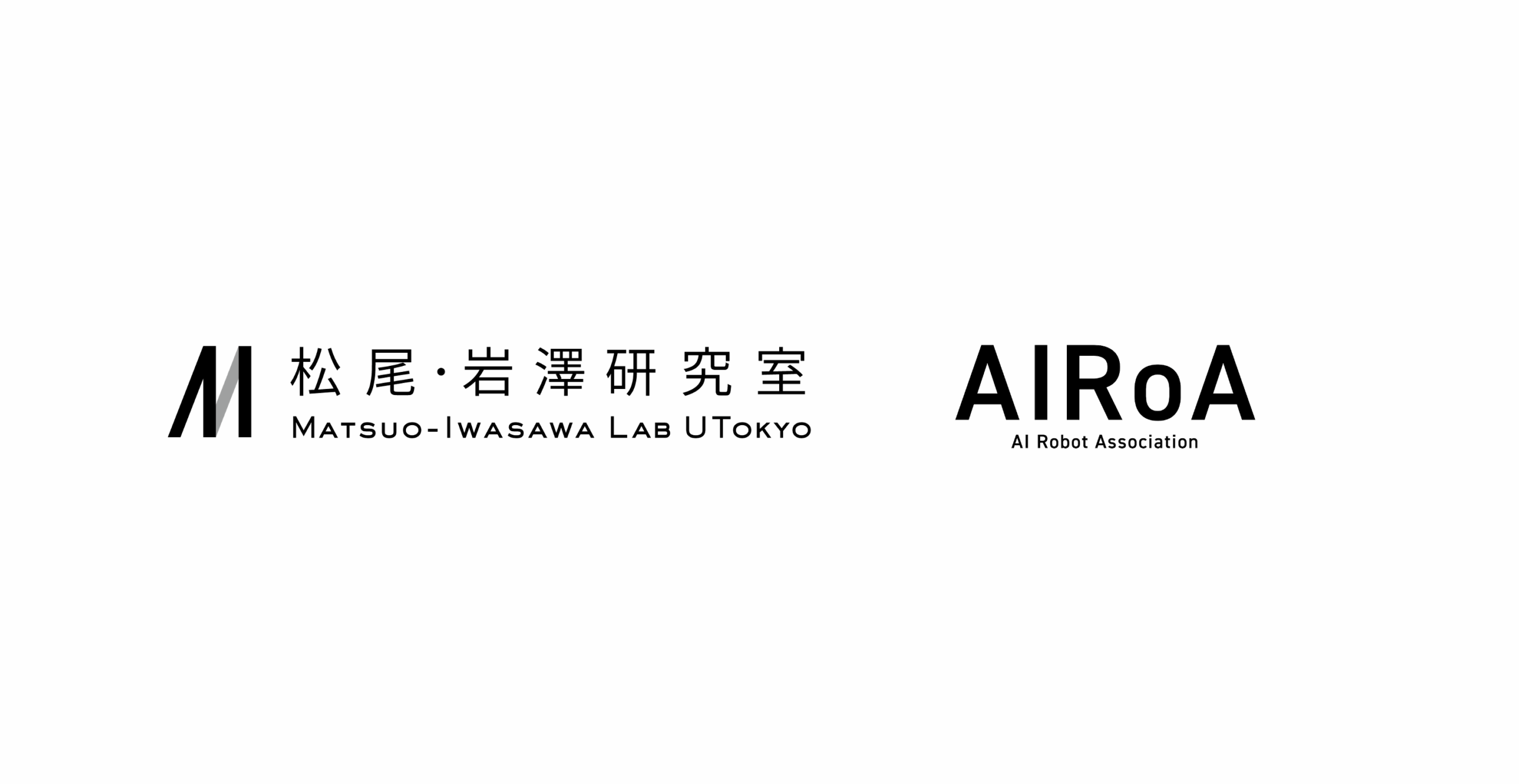The Matsuo-Iwasawa Laboratory (Matsuo Lab) at the University of Tokyo, in collaboration with the AI Robotics Association of Japan (AIRoA) and others, will conduct a demonstration experiment using remote control of service robots, “Experience the Future! Robot Remote Work” will be held at the National Museum of Emerging Science and Innovation (Miraikan) from July 23 to August 7, 2025.
Background
In recent years, the dramatic evolution of large-scale language models (LLMs) and visual language models (VLMs) and their application to the robotics domain has opened up the possibility for robots to flexibly respond to more generic tasks. pi0 (Physical Intelligence) and GR00T (NVIDIA) and other precedents, it is believed that robotics efforts that apply multimodal large-scale models will occupy an important position as the technological foundation for the robotics domain in the future.
Against this backdrop, the construction of versatile basic models and the collection of large-scale data to enable robots to acquire diverse skills and continuously learn and improve in real environments have become important international research themes.
Through this project, participants of diverse ages and backgrounds will be able to remotely operate the robot to collect feedback for designing and improving an operation interface that is intuitive and easy to use not only for experts but also for the general public, as well as data on various controls for robot automation The system can also collect data on a wide variety of controls for robot automation.
The program also aims to deepen participants’ understanding and interest in the future of service robotics and the research and development process of robotics applications of advanced artificial intelligence technology (basic model) by allowing them to actually experience robot remote operation. Through these demonstrations, we will widely promote the fact that robot technology is a highly public technology that enhances the inclusiveness of society, and promote co-creative social implementation.
Details of Initiatives
In this demonstration experiment, participants will experience the future of robot services through the provision of services by a remote-controlled robot and hands-on experience of its operation. Participants will be able to experience the latest robotics technology through the following two experiences.
Experience 1: “Hospitality from a Robot
HSR, a mobile manipulator remotely operated by an operator from the University of Tokyo, will demonstrate “customer service” to visitors. Visitors can experience the possibility that robots can provide the same attentive service as humans.
Experience 2: “Let’s Move the Robot!
Participants can remotely control HSR robots installed at the University of Tokyo and other institutions with their own control devices. Participants can experience the possibilities of robot remote work by trying simple tasks such as grabbing and carrying objects.


Event Information:
Experience the Future! Robot Remote Work
Dates and times of the event:
July 23 (Wed) – August 7 (Thu), 2025 10:30 – 16:30
Experience time is about 30 minutes.
Place of the event:
Miraikan (2-3-6 Aomi, Koto-ku, Tokyo)
1F Communication Lobby
Target: 4th grade elementary school students and above
Admission: Free
Organizers: National Museum of Emerging Science and Innovation (Miraikan), AI Robotics Association of Japan (AIRoA), The University of Tokyo
Representative of the experiment: Tatsuya Matsushima (Project Assistant Professor, Graduate School of Engineering, The University of Tokyo, CTO, AI Robotics Association of Japan)
For more information on how to participate, please visit the website of National Museum of Emerging Science and Innovation (Miraikan).
https://www.miraikan.jst.go.jp/events/202507234132.html
About the Robotics Research Unit, Matsuo-Iwasawa Laboratory, The University of Tokyo
The Matsuo-Iwasawa Laboratory is actively promoting robotics research with the aim of elucidating “what intelligence is” through real machines that interact with the real world. In addition to real machines such as robot arms and mobile manipulators, the laboratory is equipped with a variety of hardware environments including various simulators, VR devices, and multimodal sensors, creating a research infrastructure that enables a wide range of verification from virtual environments to real environments.
As a research and development community, TRAIL (Tokyo Robotics and AI Lab), in which students and researchers from both inside and outside the university participate, is also in operation and has expanded to a scale of 50 members. The group has won top prizes in both the national and world RoboCup competitions, and has formed a research system equipped with practical technical and team skills.
In April 2025, ICRA will also launch the Physical AI course, an educational course to systematically learn the fusion of AI and robotics, to train the next generation of researchers and accelerate applied research. Our research results to date have been accepted by ICRA and other top international conferences, and we have achieved results in a wide range of areas from basic to applied research.
Future
Based on the feedback and data sets obtained from this demonstration experiment, we plan to build a robot infrastructure model that can adapt to more diverse environments and demonstrate it in service areas such as in-home and retail stores. This initiative aims to introduce AI robots in Japanese industry by combining cutting-edge research in AI technology with on-site knowledge in robotics. Matsuo-Iwasawa Laboratory is actively recruiting researchers and research engineers to promote robotics research together. For more details, please see the following job opening.
https://herp.careers/v1/weblab/crh6BsRjCxX1



